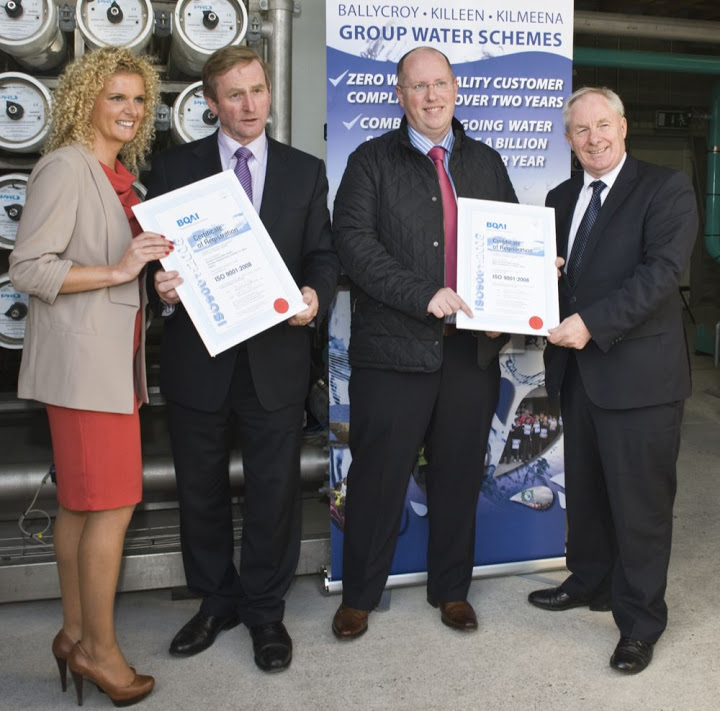Today, we are announcing big changes to the way government does business.
By that, I mean what I say: literally, the way it does business.
The contracts it signs, the goods and services it purchases – and the way it purchases them.
We need to make the system much more open, competitive and transparent.
No one should doubt how important this is.
It’s important for getting to grips with our deficit – as it will help us tackle waste and control public spending.
It’s important for lighting the fires of enterprise in our country – as it will provide billions of pounds worth of new business opportunities for smaller companies.
It’s important for modernising our public services – as it will open them up to the forces of competition and innovation.
And it’s important for building the Big Society – as it will give our great charities and social enterprises the opportunity to deliver services and receive new sources of income.
So today, I want to explain what the problems are with the system we inherited…
…how we are going to fix them…
…and the vital role I see each and every one of you in this room playing in delivering that change.
Problems with system
First, the problems with the system we inherited.
Put simply, it was – and frankly, still is – hugely wasteful and inefficient.
Too many public bodies end up spending money on stuff they don’t need and paying too much if they do.
In his efficiency review for the Government, Sir Philip Green found examples of departments paying anything up to £73 for a box of paper and £1400 for a laptop.
Now, I don’t happen to think this waste is intentional.
But I do think the system encourages it.
To begin with, too many of these contracts are signed off behind closed doors, with little or no public scrutiny.
That can be great for the contractors, who can charge over the odds without being properly challenged.
But it’s not so good for the taxpayer, who can be short-changed and denied value for money.
At the same time, the system doesn’t encourage small and medium-sized businesses, charities and social enterprises to compete for contracts…
…the very firms who can provide the competitive pressure to drive down costs.
Actually worse, it actively discourages them.
When we came to office, one of the things we did was create a portal on the Number Ten website and invited these smaller organisations to let us know what the problems with the system were. Many of those who contributed are here today.
The responses were overwhelming.
Start-ups were told they had to provide three years of audited accounts – despite the fact they’d, yes, only just started up.
Other organisations were told they could only compete for government contracts if they’d sold to government before – difficult to get around.
And firms with new products and innovations were told to wait for the right tender opportunities to come up…
…despite the fact that being an innovation, no one knew the product existed so there was no chance of the tender.
At the launch of Tech City in East London last November, I heard from one young entrepreneur called Glenn Shoesmith who’s had this very problem.
He’s invented a low-cost system that allows people to book slots online at their sports centre or swimming pool.
When he pitched it to the Olympics team he was told to find the relevant tender document and fill it in.
But the system didn’t know about the product, so there was no tender – and no way for Glenn to sell his product to government.
And quite apart from these counter-productive rules, there’s all the bureaucracy too.
Small businesses and charities complained that there was no single place where they could go online and see what contracts were on offer.
And they found it difficult to cope with all the separate sets of forms and documents from different public bodies.
All this helps explain one, shocking fact.
Despite accounting for fifty percent of the turnover of the UK business economy…
…we estimate SMEs only win five to ten percent of the billions of pounds of public sector business.
We asked departments to tell us what proportion of contracts were awarded to SMEs in a single month last year.
Many didn’t even know.
And of those that did, some of the figures were truly appalling.
Change
So this is how we are going to fix it.
To begin with, we’re making the whole system much more transparent.
Last month, we took an unprecedented step.
We started to publish every government contract worth over £25,000 in full.
This is going to make a huge difference.
Procurement managers will have to make sure they are not subject to over-the-top provisions or penalties.
Existing suppliers will know they have to offer their best price.
And new contractors looking online will be able to see the deals that have been done and say ‘I could do the same for half of what they’re charging.’
At the same time, we’re going to make the system a whole lot more welcoming to small and medium-sized firms, charities and social enterprises.
All those problems people raised before, we’re sorting them.
We’re sweeping away ridiculous rules and bureaucracy and seeking to eliminate, for smaller contracts, assessment hurdles at the beginning of the process.
Where we do need to ask questions about your company’s capability we are introducing a simple, straightforward pre-qualification form.
Fill it in once – and use it as your route to bidding for any government contract. Small businesses have been asking me for this for years, and I am delighted to be able to deliver it today.
To help you find those opportunities, I can also announce today that we are launching a new online tool – Contracts Finder.
It goes live today and is a one-stop-shop which will display every central government tender opportunity.
That’s more, wherever possible, we’re going to break up large contracts into smaller elements, so that SMEs can make a bid and get involved.
And where that’s not possible, we’ll also work proactively with our large suppliers to directly increase opportunities for smaller organisations in the supply chain.
And we are also today announcing a series of innovation and product surgeries, with the first one in April in Birmingham.
These events will give companies with innovative products and services the chance to pitch their ideas directly to government…
…rather than wait for government to play catch up and issue a tender.
All you need to be considered is a prototype and business plan.
All these changes will go a long way to help us fulfil one of this coalition’s key ambitions:
That twenty-five percent of all government contracts are awarded to small and medium-sized enterprises.
If we meet this goal it will mean billions of pounds worth of new business opportunities for SMEs.
Culture change
So that’s what we’re doing.
What I need in return from everyone in this room is a similar commitment.
From all of you who think you can provide a great service to government……the commitment to go online and start looking for new contract opportunities.
And from the procurement managers in government…
…the commitment to open up opportunities to new providers including SMEs and voluntary organisations.
I understand your concerns.
In the private sector, there’s an old adage – no one got sacked for hiring IBM.
Sometimes the big option seems like the safe option.
But I want you to feel empowered.
I want you to know that as long as you follow the right channels, I will stand by you if you take risks with young, new and dynamic companies.
I want you to really feel you are playing a part in turning our country round.
In cutting the deficit. In boosting enterprise and growth. In building the Big Society.
Mike Lynch of Autonomy once said the reason his company’s the global success story it is today is because one, maverick government contract manager defied the rules and gave him a tender.
One of you in here today could make that same difference.
So be bold.
Conclusion
Let me end by saying this.
I know a lot of this won’t be easy.
Yes, there will be opponents – vested interests that benefited from the old system will line up and try to stop what we are doing.
And yes, there will be mistakes along the way – opening up billions of pounds worth of contracts isn’t going to go smoothly.
But I wouldn’t be standing here today making the case for this change if I didn’t think it was so important.
It’s about making our country less wasteful and more accountable.
It’s about opening up opportunities to new, small organisations as well as the old, big ones.
It’s about being more dynamic, in our economy, and in our public services.
So together, let’s make it happen.















